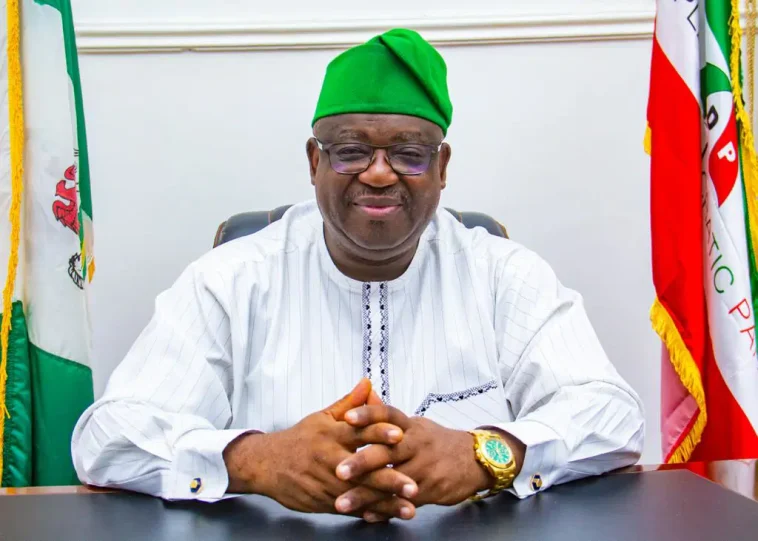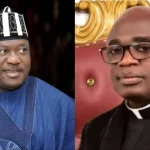By Ukandi Odey
December 08, (THEWILL) – During this period last year, the socio-political atmosphere in Plateau State was characterised by frenzy, trepidations, and fever-pitch palpitation as uncertainty loomed about the political fate and direction of the state. One year or 365 days later, the storm has given way to calm, stability, focus and direction in governance and consolidation of the Plateau project.
One year later, it is another season and another experience. Against a Plateau bitterly divided along ethnic and geopolitical lines, with political landmines planted and booby traps set everywhere to undo the winner of the 2023 gubernatorial election, it is now a calm and discerning Plateau in which the sobriety that comes with self-realisation and sheathing of swords is bonding the political elites and neutralising old hostilities.
The prevailing atmosphere of peace, reconciliation and unity is not a free gift from space. It depends on the disposition of Governor Caleb Mutfwang who, by his words and pledge to his notable friends before the election that brought him to power, did not just win to become governor, but to “provide (quality) leadership”.
A brief excursion into history will help you locate the basis and rationale of the course Mutwang is charting. Political hostilities and hot exchanges between former Governor Joshua Chibi Dariye and his successor, former governor Jonah David Jang apparently worsened while the latter held sway as governor of the state. Jibes and slurs were not uncommon as the Jang camps and their agents continually cast aspersions on the Dariye era as one without a development programme and worst in terms of profligacy, official corruption and squander-mania.
Although Dariye’s men were dutifully on the counter and pulled back shots from time to time to harass and embarrass the Jang government and its arsenal, they soon ran out of steam, scampered, and became veritably harmless bullets, as Dariyes’s road to waterloo and socio-political oblivion and melancholy was shortening.
The transfer of power in 2015 from Jonah David Jang to Simon Bako Lalong, an arguably ill-prepared APC package with doubtful govvernorship credentials coasted to power by the fangs of the angry electorate in Plateau, was even more embittered. This was understandably so because this was transfer of power from one political party to the other. But, again, it fitted into the state-wide anger against Jang for attempting to obstruct the unwritten agenda of term limits and power rotation that have moderated and modulated power sharing in the state since 1999.
As if the administration will not under-perform and leave the people and the state worse off after eight years, Lalong orchestrated punitive organograms to vitiate his rise to power and vilify the outgoing as a monolithic predator who sought to foist a family dynasty to supplant the progressive diversity of the people. To deepen the animosities, Lalong’s transition committee headed by his deputy, Sonni Tyoden, wrote and submitted a damning report that dismissed Jang’s second tenure (2011-2015) as an absurdity in public administration characterised only by family frolic and patronage.
Eight years later, both Lalong and Tyoden were drenched in the stench of a bizarre bazaar that featured desperate incendiary characters that left the stage worse than they met it. At their departure, the state was comprehensively in debt and in doubt, having been pilfered bare and pilloried to its jugular.
Desperate and utterly at a loss, but sure of his failure and prospect of successor haunt and taunt, Lalong deployed variegated tactics and twists including subterfuge to perpetuate his party in power until he was halted and humbled by the Supreme Court.
However, Governor Mutfwang has charted and continues to chart a new course for the greater interest of the state. Last week’s religious grand slam, tagged Interdenominational Unity Christmas Carol and Praise Festival, turned out to be a real unity and uniting fiesta which gains are still counting. Even if the success of the programme hosted on a pious property uniquely christened Ten Commandments in Doi village of Jos South was not imagined at conception, that the programme was conceived at all and planned to recognise and rally all and sundry points to Mutfwang’s genuine commitment to his pledge to “provide leadership”.
The “unity prayers” event has earned a unique place in the history of the State for its ability to bring all past leaders of the State together for a solemn and common purpose, for them to rethink their contributions to the development of the State, and the prospect that there is still more to be done, and that together they can still do better.
The “unity prayer” was the first of such in the country when and where a serving governor demonstrates the imperative of putting the state and its destiny beyond the idiosyncrasies and parochialisms of politics, and explores camaraderie and es- sprit de corps as instruments to strengthen unity by fostering reconciliation, forgiveness, tolerance, and appreciation of one another’s social differences in order to entrench peace and enduring harmony for collective security and progress.
The organisers of the event did not only reach out to past governors and leaders of Plateau, military or civilian, there was proper identification and recognition of the numerous illustrious sons and daughters of the state who have served in one capacity or the other in the public space. Besides, the sense of belonging and commitment of each of the past leaders of the state was cultivated and enlisted. Thus, when former Governor Joshua Chibi Dariye was called upon to take the First Reading on the first day of the religious fiesta, he felt a sense of commitment; and carried out the assignment with such candour and zest that speak only of a genuine representative of a congregation and people.
On each day of the three-day event, the spirit and solemnity of the occasion increased with a catch-all ferocity and momentum as attendance for each day retained an upward curve, culminating in an exponential and tidal number on the last day of the event.
That it was historic and of national consequence is true for several reasons. It did not only have in attendance two former heads of state of Nigeria, it was an event that put the duo of Generals Yakubu Gowon and Olusegun Obasanjo together for three days arguably for the first time, forty nine years after their membership of the Supreme Military Council, SMC.
While Governor Mutfwang, at the occasion, observed that “we have begun a journey as a people…a journey to unity, a journey to peace, a journey to progress, and a journey to fulfilling the prophetic destiny of Plateau State”, it was more than a Plateau State “journey” as Gowon and Obasanjo used the opportunity to share notes in national leadership. For the first time in almost thirty years, General Gowon revealed how he personally appealed via a personal letter to the late General Sani Abacha not to waste Obasanjo’s life as a result of the 1995 controversial coup claims by the Abacha regime. A sober and appreciative Obasanjo who confessed ignorance of Gowon’s goodwill and intervention for his life until this encounter at the Ten Commandments in Jos, thanked his “Boss” nonetheless for that show of kindness and love.
Governor Mutfwang used the occasion to urge his people: “let us move together”. For a state that has fought many wars and survived many trials the occasion was a “unity prayer” overdue; it was no less a brilliant leadership outing for Governor Caleb Mutfwang, the convener
By Ukandi Odey.






